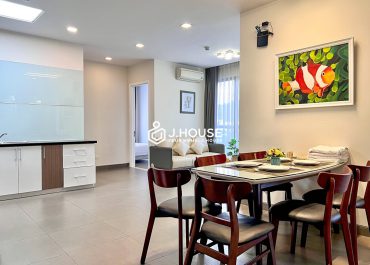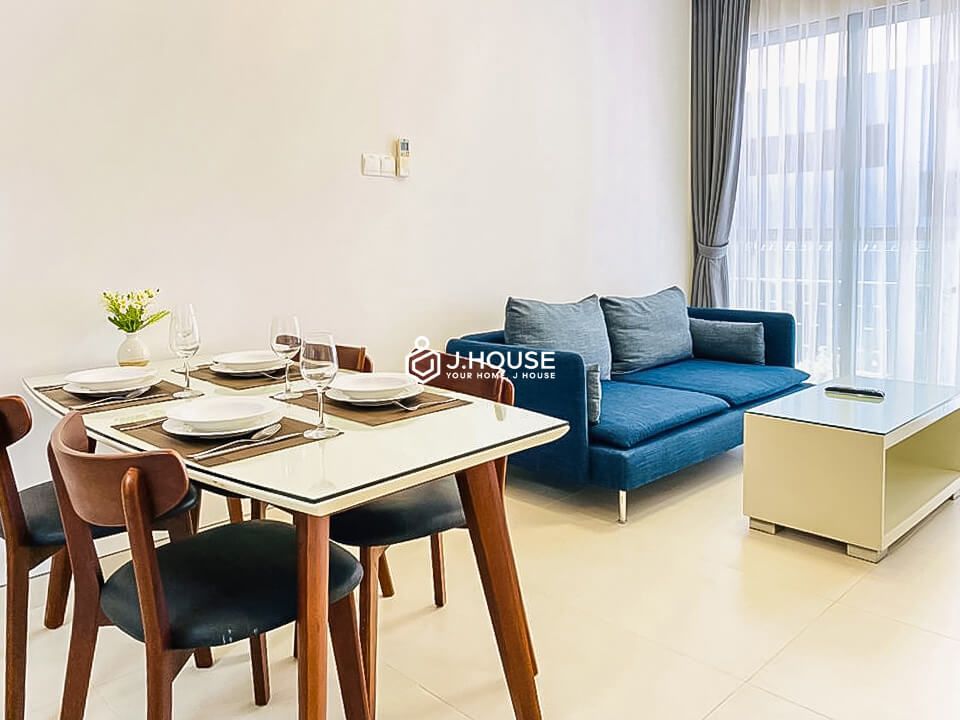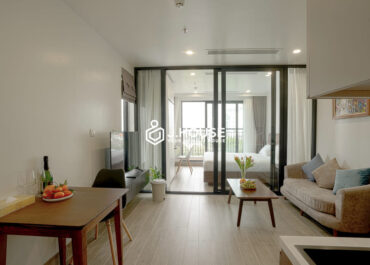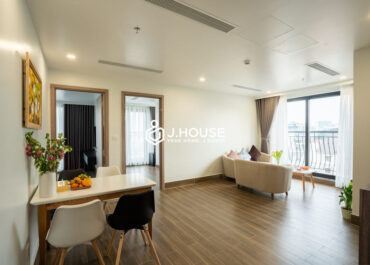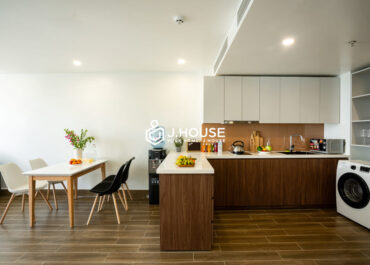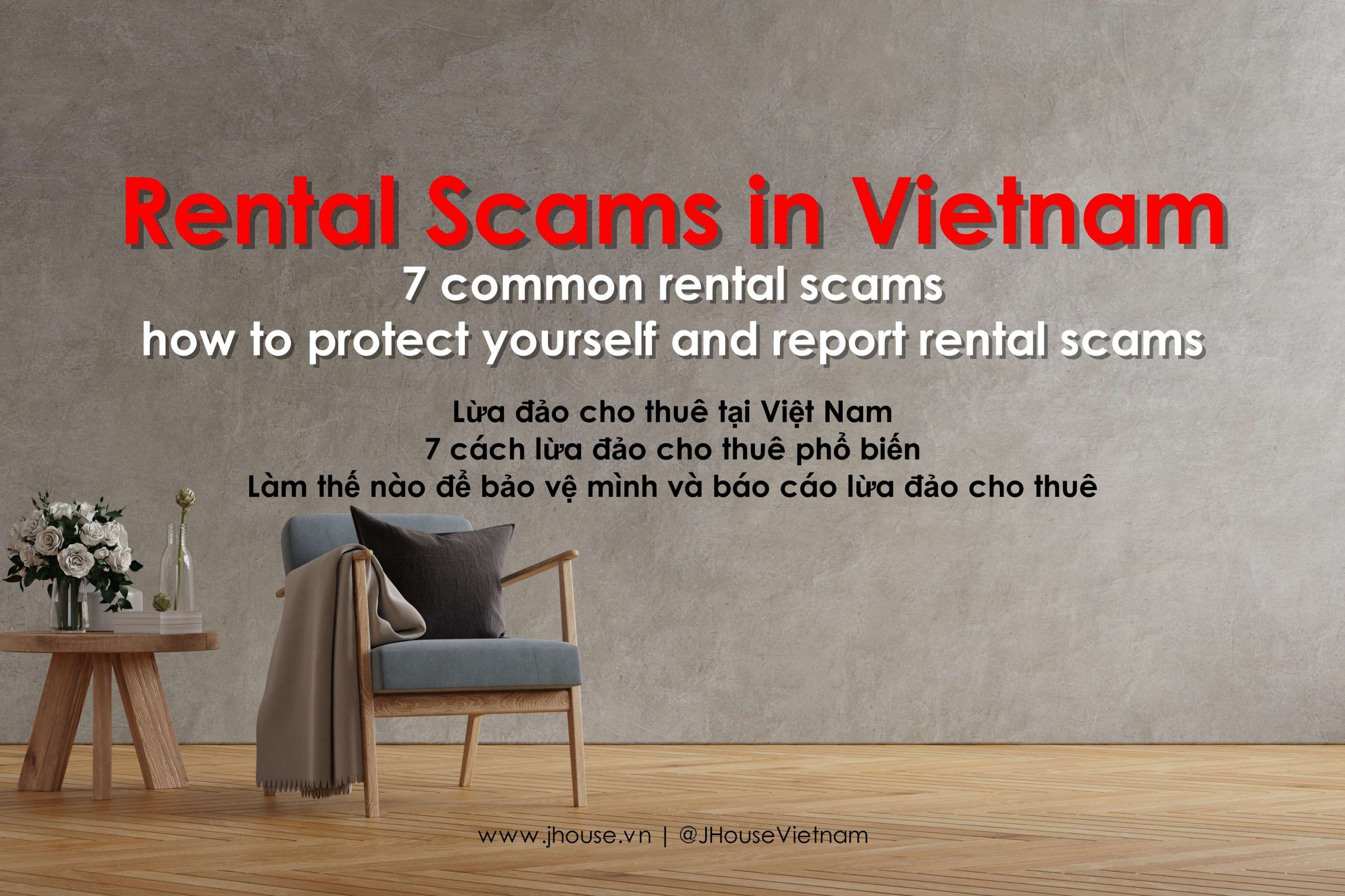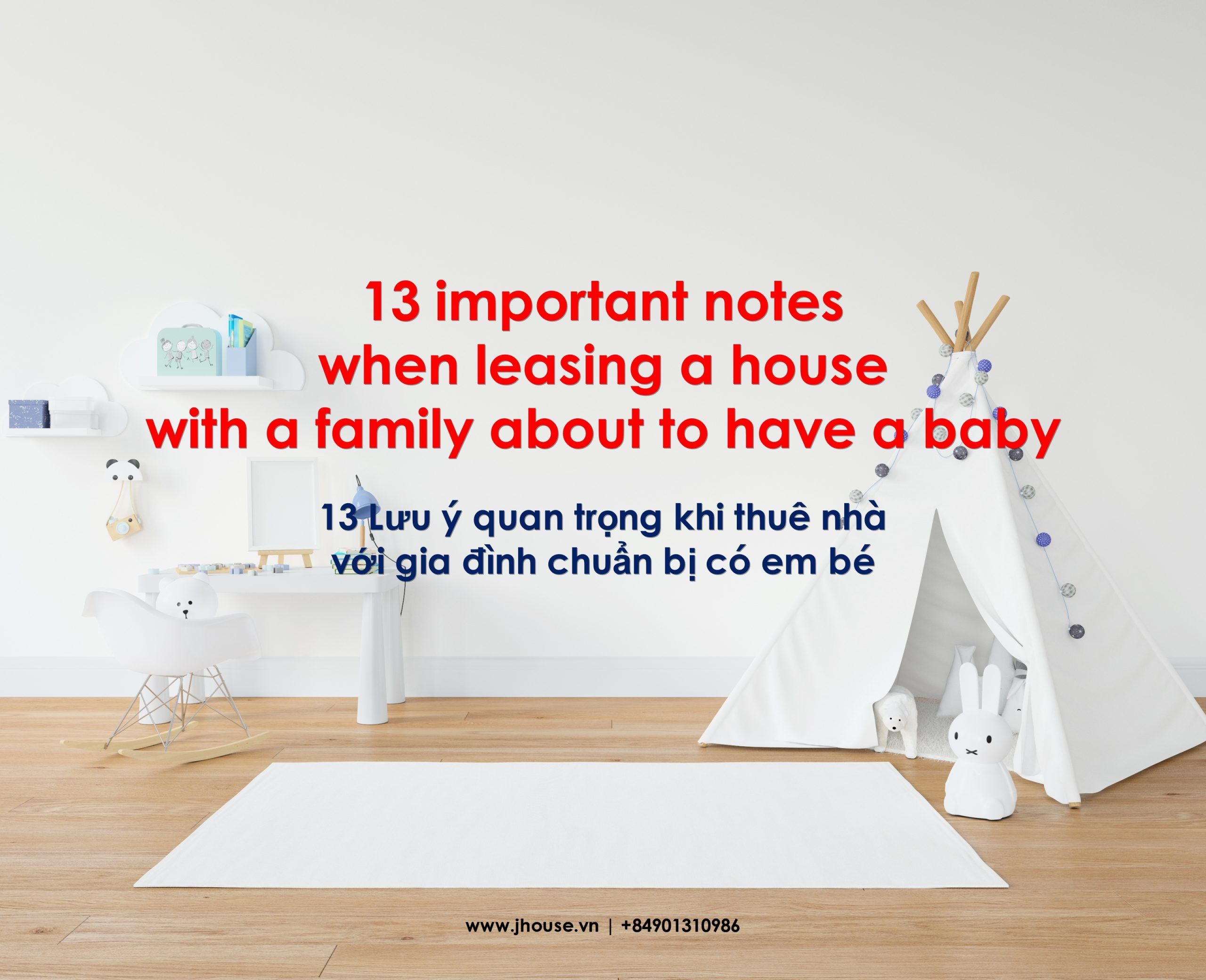Latest Properties
Apartment Living
7 Common Rental Scams, How To Protect Yourself & Report Rental Scams
13 Important Notes When Leasing A House For A Family Going To Have A Baby
We would like to send our best wishes to you and the new member of your family. JHouse understands your excitement, happiness, pride and worries. JHouse knows that you have many thoughts and questions in your head and are looking for answers for yourself, just relax and share with your partner and with your family. It will be truly wonderful when the baby is born and raised in love, shared by you, your family members and with careful preparation.
13 important notes when leasing a house for a family going to have a baby
Most of all, you want to find a better living space, more suitable for your baby. You start your new home searching, you look for suggestions and start visiting homes. You and I both want your baby to be born and live in a safe and comfortable home. Here are JHouse's tips so you can find a house that's right for you and your baby. Let's explore together.

1. The house accepts the baby
This is a must and it is better to put it in the contract.
You need to find houses that accept babies. Don't overlook this when you're dealing with owners or broker-dealers and need to make sure that the owner and the house accept the baby to eliminate your worries in the future by making it clear from the start. Neither you nor I want the owner to push you to move out of the house because they don't understand your problem. In Vietnam, there are houses that do not accept babies under 10 years old.
2. The space is big enough
In the early months, your baby just needs a little space because your baby can't move, but over the next few months, your baby will start crawling, walking and running… so you need to find a house with enough space for your baby to function comfortably.
In addition to the space large enough for your child to function, you also need more space for your child's devices and toys and for yourself. Therefore, consider a long-term lease with a large enough space so you won't have to worry about your baby growing up so quickly in the early years and don't have to worry about finding and moving to a new house.

3. The house has a lot of natural light
I'm sure if you don't have a baby yet you want to find a bright house with lots of natural light. It will make you comfortable, environmentally friendly, cost-effective, …
And when you have a baby, especially a newborn, you especially need a house with lots of natural light. Your baby needs light, natural light is good for the baby's growth. Your baby doesn't need the light of an electric light bulb.
In addition, natural light will help the house have more vitality and not be moldy. Mold is a respiratory hazard for your baby and yourself. It is possible to get skin diseases if your house is moldy.
4. The house is clean
A baby's skin and respiratory tract are weak and very sensitive. That's why you need to find a new or clean house. A clean house keeps your family comfortable and your baby safe.
Ask the owner to deep clean the house, clean the equipment, clean the air conditioner, ... or trim the trees around the house, clean the garbage storage, clean the sewage pipes, ... Ensure the house is cleaned of dust, pet hair, odors, mold, ... before your family moves in.
5. The house has a private washing machine
Give preference to houses with private washing machines. I'm sure the washing machine is a very essential appliance for your family when the baby is born. Your baby will use a lot of items in a day and you need to clean it as soon as possible.
The private washing machine in the apartment will help you take the initiative to do the laundry. This is convenient and it makes you more comfortable, saves you more time. Imagine your family is in a building and the washing machine is shared by everyone, you have to wait for your turn, wash your baby's clothes with other people's clothes, etc. inconvenient and risky, right?
If you rent a private house or villa, please be aware of the washing machine. Installation can be requested by the owner if not already available. Or you can buy your own washing machine because you have a long-term stay plan and the cost to buy a washing machine is also cheap.
6. Convenient kitchen
It's great with a fully equipped kitchen. You can prepare delicious dishes for the whole family. Your baby can't eat as many processed foods as you yet. Your baby needs to eat consistently with age-appropriate foods. First priority is clean, fresh and fast.
Add “Convenient Kitchen” to your list of baby-friendly house search criteria. Do a detailed assessment and negotiate with the owner to supply kitchen appliances or you can add appliances. The kitchen needs enough space for many cooks and it is better to have hot and cold water for cleaning food.

7. Safehouse
Now you don't just live for yourself, you live for your children too. You need a safe place for you and your baby. Therefore, consider the degree of safety of the house with your baby. Consider the height of the balcony, electrical outlets, sharp objects, fragile items, trees, door locks, corridors, stairs, elevators, pets in the middle of the house, floors, etc. Accidents will come very quickly even when you are watching your baby so pay attention to the safety criteria in the house, to make sure that there is not an unfortunate risk to your baby. If possible, look for solutions to eliminate the risks.
8. The fewer stairs the better
It's great if you rent an apartment/private house/villa with everything on the same floor. Your baby is not aware of the risks and cannot keep him/herself safe and you cannot watch your baby all the time. So look for houses with as few steps as possible and preferably no stairs.
9. Safe height
If you are looking for apartments in high-floor buildings, be aware of safe heights. It is better for apartments on the middle floor or from the 7th to the 15th. A safe height will help you reduce noise, reduce dust, mosquitoes, and other risks from elevator jams or fires.
10. Safe swimming pool
If you are considering renting a villa with a pool or an apartment in a serviced apartment building with a pool, consider the safety of the pool. About safeguard, hygiene, tables, and chairs around the pool, … Your baby needs to be kept safe with the pool.
11. Safe from mosquitoes
You and your baby don't want mosquitoes at all. Mosquitoes can cause baby rashes, scabies, fever or worse, blood-borne infections. Therefore, make sure that your new house is installed with measures to prevent and eliminate mosquitoes (periodic sprays, mosquito nets, etc.). Consider houses far from canals, no standing water areas, not too many trees/bushes, etc. as these places will have little or no mosquitoes. In Vietnam, there are mosquitoes everywhere, so you need to choose a house in the area with the fewest mosquitoes. If you are renting a house in Vietnam for the first time, look for reputable brokers who will give you valuable advice and consult.
12. Near hospital and market (supermarket)
Newborn babies are very susceptible to illness, so it's best to look for houses that are closest to the hospital or easily accessible. It is good for emergencies. Advice from JHouse: You should have the phone number of a doctor in your phone contact list, who knows and monitors your child's health.
Your baby will need fresh food every day and you can find fresh and good food at local supermarkets or markets. This is why you need to find houses near local markets or supermarkets. It will save your time and provide quality meals for your baby.

13. The house is located away from the main roads
Your baby will grow up and need to go outside. That's why you need to find houses in areas that are baby-friendly and safe and it is better to be located far away from the main roads, where there is a lot of traffic, it is really bad for your baby and has many potential risks that you cannot control.

There are some more notices to keep in mind when renting a new baby-friendly house for your baby. Above are 13 important notes that JHouse wants to emphasize with you. Be cautious and serious when looking for a new house and put priority to your baby.
If you are having a hard time finding a home or are in need of advice, JHouse staff are always available and support you with valuable consult and advice from their market knowledge, … Let JHouse provide convenient housing solutions for your baby and family.
JHouse Content Team The in-depth content development team on housing services for foreigners & Vietnamese in Vietnam. The content is simple, easy to understand, logically arranged to bring readers useful topics and information from real experiences. JHouse welcomes sharing & copying from you – Attach source & quote from JHouse, please!
What Is A Pet Deposit? How Does It Work In Vietnam?
Is your pet a member of your family? Are you planning to have a pet in the future? Are you looking for a pet-friendly house? Are pets allowed in Vietnam? And how does it work?
What is a pet deposit? And How does it work in Vietnam?
Let JHouse provide you with helpful information and suggestions about pet deposit and how it works in Vietnam. The article provides information for tenants, owners and agents, … don't miss the information. Let's just get started.

1. What is a pet deposit?
A pet deposit is a one-time down payment that the tenant must pay the owner to have the pet to be raised in the house by him or her.
Like any other renting security deposit, a pet deposit helps ensure that tenants keep hygiene, follow the residence's pet rules, and be careful not to let their pets damage the property. The pet deposit is refundable depending on whether the pet damaged the property and the extent of the damage.
Read more: What is the meaning of security deposit? And popular types of deposit when renting an apartment
2. Laws and regulations on pets rising in Vietnam
In Vietnam, there are Laws and Regulations on pets. Let's look with JHouse in detail:
- Law on Livestock No. 32/2018/QH14. Article 69, section 2, chapter V: Regulations on humane treatment of livestock.
- Circular 07/2016/TT-BNNPTNT. Regulations on vaccination of pets. If pet owners fail to vaccinate their dogs and cats against rabies, they may be fined from 600,000 VND to 800,000 VND (based on Clause a, Article 2 of Decree No. 90/2017/ND-CP).
- Decree 90/2017/ND-CP. Regulations on wearing muzzles for dogs, dog leashes when going out. If the pet owner does not wear a muzzle for the dog or does not keep the dog on a leash, there is no one to walk the dog when taking the dog to a public place will be fined from 600,000 - 800,000 VND.
- Civil Law No. 91/2015/QH13. According to article 603, if a pet causes damage to another person, the owner of the pet must compensate.
- Circular No. 02/2016/TT-BXD promulgating Regulations on management and use of apartment buildings.
3. Is a pet deposit discriminatory?
The answer is definitely not!
Vietnam is the same as other countries on over the world. We love and cherish our pets. That's why the Law and regulations on raising pets in Vietnam were published.
Pet deposit is NOT DISCRIMINATION! It is like an amount of money that the owner temporarily keeps for the tenant. This will let owners protect their property against harmful actions from pets and ensure that tenants are responsible for their pets during the leasing time.

4. What is the difference between pet deposits and pet fees?
- The pet deposit is a one-time payment and will be refunded at the end of the lease. The pet deposit will be deducted if the pet damages the property, in this case, the deposit may only be partially refundable.
- The pet fee is a non-refundable payment. It can be a one-time payment or it can be paid as a monthly fee such as rent, electricity, water, parking or other monthly renting utilities payments.
While paying extra for your pet to live with you is not really interested, it's necessary for both tenants and owners. Owners need to protect their property in the event of damage, and tenants need to prove that they are responsible for their pets.
5. When do tenants need to pay pet deposits?
As soon as the leasing contract is signed, the tenant needs to pay a pet deposit. May be paid with other rental deposits and, it may or may not be the same payment date as the first month's rent.
6. How much is the pet deposit?
There are no regulations on pet deposits in Vietnam.
However, according to the general practice in each locality, the pet deposit will range from 2-12 million ($100 - $500) depending on the number and size of the pets.
Helpful tips from JHouse for tenants: If you are required to pay a pet deposit, negotiate with the owner to a minimum or you can work with agents, give them an amount of pet deposit payment that you can pay, and they will negotiate with the owner on your behalf.
7. Are there any restrictions on pet breed or size?
While that may seem unfair, there are breed and size restrictions on pets in Vietnam.
- Commonly accepted pets in Vietnam such as: Dog, cats, mouse, rabbits, squirrels, small geckos, fish, etc. And there are size restrictions based on weight. Normally, in apartments and serviced apartments, pets with a weight from 5kg to 10kg or less are accepted. For single-family homes and villas, there is no weight limit for pets.
- Pets that are not accepted in Vietnam such as pigs, salamanders, chickens, birds, snakes, etc.
Useful tips from JHouse for tenants: Please provide your pet's information (photo, weight, characteristics, ...) to agents and owners when you are looking for a new hose and make sure the owner agrees with your pet and it's reflected in the leasing contract.
8. What should tenants pay attention to in the rental contract when raising pets?
In order to avoid future troubles or unforeseen, tenants need to ask the owner to clearly specify the terms: Pet allows agreement, pet deposit and content related to the rights of both parties. You should pay attention to the policy of deposit refund, deposit deduction, wear and tear, etc... To get your security deposit back quickly and safely at the end of the contract.
If you do not currently have a pet, but you have plans to have one in the future. You need to let the owner know about this and it should be reflected in the leasing contract.
9. What should tenants do to protect their pet deposits?
A rental deposit is a payment that is refunded to the tenant at the end of the lease. That's why tenants need to protect their pet deposits. Here are some helpful suggestions from JHouse for how tenants can protect their pet deposit:
- Ask the owner to provide a pet deposit clause in the lease.
- Provide pet owners with information such as: Periodic health checks, periodic vaccination books, ...
- Take actions that are encouraged when rise pets such as: Train the pet, wear a muzzle for the pet when going out on the street, provide enough food & water for the pet, do not let the pet make noise, Periodic health check for pets, …
- Protect assets inside the house such as sofa cover, chair/table legs, floor mats, etc.
- Actively clean regularly for pets. Clean up when your pet defecates or urinates.
- Follow the residence's “Pet Rules”.
- Actively repair or replace damaged property caused by pets.
- Use pet care services at home or send pets to pet care clinics, … when you travel or go on a business trip for a long time.
You can also refer to 11 tips to protect your rental deposit when renting a house in Vietnam.

10. What should tenants do with their pets?
To protect and avoid possible risks caused by pets, tenants are encouraged to take the following actions:
- Routine vaccinations for pets
- Periodic health check for pets
- Pet training
- Wear a muzzle for your pet when going out
- Arrange space for pets inside the house.
11. What do owners need to do when allowing pets?
So happy that you are a pet-loving owner. Your home always welcomes tenants with their pets.
But you are having concerns about how to control the risks caused by the tenant's pet. Here are some helpful suggestions from JHouse on what owners need to do to have a good starting business.
- If you have a plan to build an allowing pet residence, you can design equipment in the house that is pet-friendly and less damaged such as sofas, dining tables, floors, walls, corridors, trees, balconies, etc.
- Put a separate pet deposit clause in the rental contract.
- Provide tenants with “Regulations for pets” and “Activities are encouraged to follow when keeping pets” in your home.
- Ask the tenant to provide information about the pet such as: term health check, vaccination record, etc.
- Ask other residences who rent in the same building about the pets while living in the same place
- If your house has a lot of space, you can design a place for the pet community where all pets of the building can play together.
12. What should real estate agents notice when consulting pet-friendly housing?
If you are a realtor and you have a tenant who has a pet. These are useful suggestions from JHouse so that you can advise and provide good housing solutions for tenants and owners.
- Ask tenants to provide you with information about their pet: Photo, weight, quantity, vaccination record, ...
- Provide and deal with owners on tenant pet issues. Make sure the owner accepts the tenant's pet.
- Provide tenants with a list of properties that allow pets and provide specific notices of the house about pets to tenants.
- Clarify pet permission and pet deposit in the rental contract.
We, JHouse hope that you have a deeper understanding of pet deposit and how it works in Vietnam. If you still have concerns and questions that need to be answered, JHouse staff is always ready and happy to assist and advise you on pet-friendly housing solutions in Vietnam.
JHouse Content Team The in-depth content development team on housing services for foreigners & Vietnamese in Vietnam. The content is simple, easy to understand, logically arranged to bring readers useful topics and information from real experiences. JHouse welcomes sharing & copying from you – Attach source & quote from JHouse, please!
Everything You Need to Know About Your Security Deposit
You are the owner, tenant or agent, … and you are going to sign a leasing contract. You are worried and have many questions about the deposit. Why deposit and deposit to insure for what? You have not understood your responsibilities and obligations when paying for a deposit. And there are too many other questions about the deposit that you need to understand to reassure yourself and make the right decisions.
Let JHouse provide you with information about the deposit and how it works in the Vietnamese market of leasing. The article will be long and full of useful information, so please be patient and do not skip any bullet. We are sure it will be useful to you. Let's just get started.
Everything You Need to Know About Your Security Deposit
1. What is a security deposit?
A security deposit is a specific amount that a tenant must pay to the owner which is seen as a commitment to perform the lease and protect/maintain the owner's property. The security deposit is seen as a tangible means of security in case of damages, loses the property or fails to fulfill the terms of the lease cause by tenants.
2. How many types of security deposit are there?
A security deposit is a common term that refers to the amount of money a tenant must pay to the owner. However, the deposit will cover the following types:
- Deposit for contract performance and commitment to property protection.
- Deposit for pets. See more pet friendly apartments at JHouse.
- A separate deposit for a high-value or special property.
- Deposit for car parking.
3. Are there any alternatives to the deposit?
Almost tenants will pay a deposit in the traditional way which means they will provide the owner with a certain amount of security deposit at the beginning of the lease. However, there are alternatives ways for tenants that are helpful solutions in paying their security deposit and reducing the financial burden at the start of a lease.
- Rental insurance: It is understood as a small fee that you need to pay the owner monthly to secure the contract execution. This is an extra amount in addition to the monthly rent that tenants need to pay. Tenants can suggest a rental insurance around 5%, 10%, 15% or 20% on the monthly rent and this fee will not be refunded to the tenant at the end of the contract.
- Pay per damage: Tenant will pay for property damage or loss for each case. However, tenants need to prove they are a great tenant with a good payment history, quick compensation, etc. at previous leasing at other properties. This is a big barrier for tenants to successfully dealing with the landlord
- Delayed deposit payment: The lessor can request to pay partly by partly within a definite period of time until full payment for the deposit to reduce financial pressure at the beginning.
4. Basis for regulation of security deposit?
In Vietnam, there is still no law for rental security deposit. However, the owners often regulate the amount of the deposit on the following factors:
- The common custom of the current market.
- Monthly rent fee.
- The value of properties inside the apartment.
- Length of leasing contract.
5. How much is the security deposit?
There is no specified amount of the deposit. However, depending on the rental period and the type of property, there will be a minimum deposit. The minimum of the security deposit is equivalent to one month's rent.
6. What is the difference in deposit for serviced apartments, condominiums, whole houses, villas and commercial establishments?
There is no specific regulation on the amount of security deposit for the above type of properties. However, according to local practice, the deposit amount for the above types will be as follows:
- For serviced apartments: The deposit is one month's rent for a 6-month contract, two months' rent for a contract of 12 months or more.
- For apartments: The deposit is two months' rent. Regardless of the rental period, there are a few owners who will ask for a deposit of three months' rent.
- Whole houses, villas and commercial establishments: The deposit is two months' rent for contracts under 03 years, three months' rent for contracts of 03 years or more. However, there are still some cases that the owner will ask for a higher amount of deposit (04, 05, 06 months) and it depends on the assets inside the house.
7. Who pay for the security deposit?
Most of us think that the deposit will be paid directly by the tenant. However, the deposit can be paid by the following individuals and other organizations:
- Tenants by their own: Definitely.
- Enterprises and public organizations: Companies have a rental policy for their employees or public organizations that provide housing services for government organizations, non-profit organizations, embassies, consulates, state organizations, etc.
- Brokerage Agent: Tenants will work with a brokerage agent. In this case, the brokerage agent will be the one who signs the lease with the property owner and will pay the deposit.
8. Can the broker-dealer receive and keep the deposit?
There have been many unfortunate incidents with tenants when giving the deposit to the brokerage agent. The tenant has been scammed out of the deposit. This is a fact and to eliminate this risk, tenants need to understand more about “who is the one receive the deposit”. The deposit needs to be paid directly to the legal property owner (property owner, authorized person or property manager provided by the property owner). This is the only way for you to eliminate the risk of being deceived. Never pay a deposit to a broker-dealer. Brokerage agents do not have the function of taking deposits from tenants.
9. When does the tenant need to pay the security deposit?
Usually, upon signing the leasing contract, the tenant needs to pay a deposit. However, the deposit can be paid within 02 or 03 days from the date of signing the lease contract. The payment of the deposit as an commitment of the tenant in executing the contract and make the contract to be valid.
10. You need to pay your deposit by cash or bank transfer?
Payment by bank transfer is recommended for all tenants. If you have problems with paying by bank such as: different banks in different countries, high bank transfer fees, etc., then cash payment is substituted. One important note: tenants need to ask the owner for a deposit receipt, whether you pay by cash or by bank transfer.
11. Do you have to pay the security deposit and rent at the same time?
The answer is that it is not necessary to pay at the same time. If you are a person with good finances, you can pay the rent and deposit at the same time. However, a safe solution for you is: pay the deposit when you sign the lease and pay the rent when you move into the house.
12. When is the rental deposit used?
The security deposit serves as a financial protection for the owner's property from damages cause by tenants and to ensure that all fees are paid. The use of the deposit is clearly specified in the contract. Useful advice from JHouse is: It is necessary to clarify the terms of use of the deposit in the leasing contract. Deposits are used in the following cases:
- Property protection: Deposit is used to pay for damage, repair or loss of property caused by the tenant intentionally or unintentionally.
- Financial protection: When tenants do not pay rent or do not pay fees for other utilities (such as electricity, water, internet, cable TV, parking, use of the gym, swimming pool, …)
- Pet vandalism protection: When a tenant's pet damages the properties.
13. Does the security deposit increase as the rent increases?
In Vietnam, the deposit will not increase when the rent price increases (rent in period or lease renewal). JHouse's advice is: make it clear in the contract to avoid unexpected situations.
14. Does the rental deposit have interest?
A security deposit is a security deposit from the tenant to the owner. The owner is considered the temporary keep the money from the tenant and is entitled to use it to ensure the legal rights when performing the contract. Therefore, this amount will not be charged interest.
15. Can the security deposit be used as rent?
The deposit cannot be used as rent. However, anything can happen. The tenant may suggest to the owner to consider the security deposit as rent in the final payment period of the lease. To make sure the tenant should negotiate with the owner before signing the leasing contract.
16. When the tenant has a problem and cannot perform the contract, can the he/she get the deposit back?
Definitely not. The deposit is a way to make sure that tenant will perform the contract. If the tenant does not perform the contract, the deposit will be lost. However, in some cases when the tenant can explain a good reason for not continuing the lease (such as moving to another province, becoming seriously ill, etc.), the owner will support providing a solution for the tenant to get a partial or full refund of the deposit.
17. Will I get a deposit when the owner breaks the leasing contract?
The tenant will receive the deposit, this will be clearly stated in the contract. However, as a general practice, if the owner breaks the lease agreement, it is necessary to return to the tenant the amount of the deposit that the tenant paid and plus an addition amount contract violation equivalent to 2 times of the deposit amount.
18. When will you get your deposit back?
The contract regulates how long you will get your deposit back after the end of the lease. Usually it is 3 days or 07 days or 10 days or 15 days or there are some owners asking 30 days after the end of the lease to return the deposit to the tenant. However, tenant should try to negotiate with the owner about the shortest time to get it back when signing a lease.
19. When did you lose or have your deposit deducted?
Good advice from JHouse is: make it all clear in the leasing contract.
- Tenant will lose the security deposit in case of: Failure to continue performing the lease. Break the lease before the time of contract end.
- Tenant will be deducted deposit in case: There is damage or loss of property. No rent payments. Do not pay for other utilities fee.
20. How to protect your deposit?
Getting your deposit back is an important step when you end your leasing contract. The security deposit is basically your money and you don't expect it to be lost or wasted when you move out of the apartment. The landlord is obligated to return the deposit at the end of the leasing and the tenant decides not to extend it further.
Be a smart tenant and carefully prepare solutions to protect your security deposit by: Having a clear tenancy plan, clarifying the deposit terms in the contract, asking the owner for a margin receiving deposits, checking the list of properties before and after moving out, ... until working with a brokerage agent.
Check out more JHouse's 11 tips to protect your deposit.
21. What should the owners do to protect their interests when receiving a rental deposit?
The landlord is the person who will receive the security deposit from the tenant. Therefore, the owner needs to understand the rights and responsibilities when receiving the deposit so that the tenant will not against or accidental in case the deposit is deducted. Owners need to prepare a contract with clear terms for the deposit.
The owner needs to provide a deposit receipt to the tenant. If there is damage, repair or loss of property, the owner needs to provide invoices for the repair or purchase of new property, ... to the tenant. It is a reasonable proof for the owner to deduct the deposit.
Offer a suitable time period for the deposit to be returned to tenant at the date of contract end, a sufficient amount of time to inspect for damage and be financially ready.
The owner should consider the security deposit as a temporary keeping and should be refunded at the end of the lease. It is not a profit from business activities. So please do not make a disastrous mistake!
Please clarify payment matters, including the deposit. Instead of messing around with how the security deposit should be handled, make it clear in the leasing contract. Be a smart tenant and a landlord with a deep understanding of your rights and responsibilities.
If you are struggling to find helpful advices on deposit or rental terms and conditions, JHouse staffs are here ready to advise and provide you with useful tips.
©JHouse Team Website: https://jhouse.vn/ Fanpage: https://FB.com/JHouseVietnam







